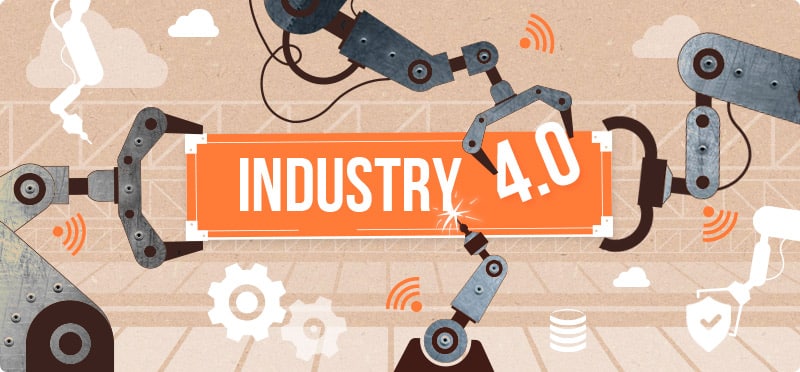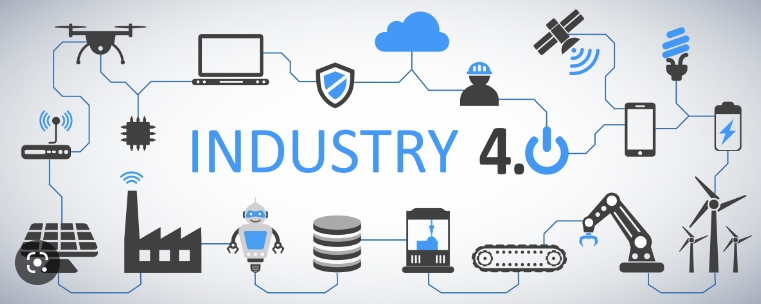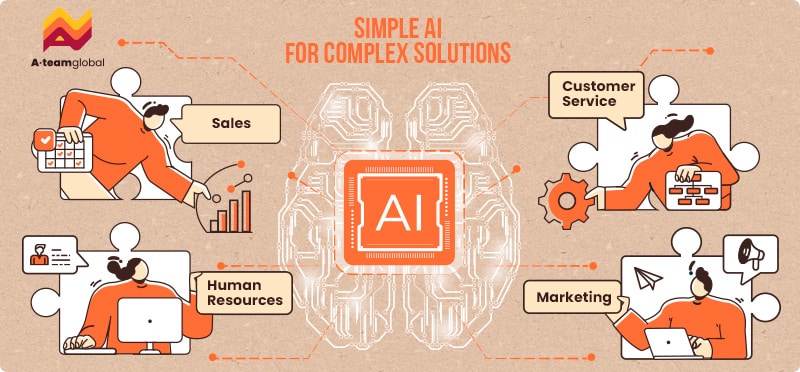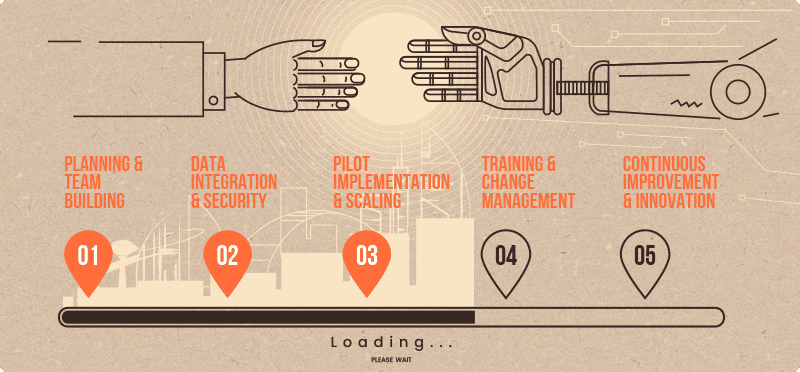
Industry 4.0, referred to as the fourth industrial revolution, is the current trend of automation and data exchange in manufacturing technologies. It includes cyber-physical systems, the Internet of Things (IoT), and cloud computing.
The concept of Industry 4.0 builds upon earlier industrial revolutions. These revolutions introduced technologies like steam power, electricity, and automation. Industry 4.0 advances this further by integrating cutting-edge technologies such as artificial intelligence, machine learning, IoT, and cloud computing into manufacturing. This integration aims to enhance efficiency, flexibility, and intelligence in the manufacturing process.
The primary objective of Industry 4.0 is to establish smart factories capable of collecting and analyzing data in real-time, facilitating instantaneous adjustments to the manufacturing process. This paradigm shift not only enhances efficiency but also introduces novel challenges and opportunities for the workforce. Among these challenges is the need for reskilling employees to adapt to the evolving technological landscape. Simultaneously, Industry 4.0 presents new job opportunities in fields like data analysis and information technology.
Benefits of Industry 4.0
Industry 4.0 offers a range of benefits for manufacturers, including:
Increased Efficiency
Industry 4.0 technologies such as robotics, AI, and IoT allow for the automation of repetitive tasks and more accurate and precise production, which can lead to increased efficiency and reduced costs.
Flexibility
Smart factories enabled by Industry 4.0 can quickly and easily adapt to changes in demand, allowing manufacturers to respond more quickly to market changes.
Improved Quality Control
The use of sensors and cameras in Industry 4.0 can provide real-time monitoring of the production process, allowing for early detection and correction of any issues, which can lead to improved quality control.
Predictive Maintenance
By using data from sensors and other devices, Industry 4.0 technologies can predict when equipment is likely to fail, allowing for preventative maintenance and reducing downtime.
Better Supply Chain Management
Industry 4.0 technologies, including IoT, cloud computing, and blockchain, offer the capability to provide real-time visibility into the supply chain. This empowers manufacturers to make more informed decisions and enhances coordination with suppliers and logistics providers.
Increased customization
Industry 4.0 technologies enable faster product development and prototyping, which allows manufacturers to offer more customized products to customers.
Increased Productivity
Industry 4.0 technologies enable the real-time monitoring of production lines and the automation of repetitive tasks, which can increase productivity and reduce costs.
Environmental Sustainability
Industry 4.0 technologies can help reduce energy consumption, improve resource efficiency, and reduce waste, making the production process more sustainable.
In general, Industry 4.0 has the potential to revolutionize the way manufacturing is done by increasing efficiency, reducing costs, and creating a more sustainable and flexible production process. Companies that adopt these technologies will be well-positioned for success in the future.
Industry 4.0 Technologies
Industry 4.0 technologies refer to the advanced technologies that are integrated into the manufacturing process to increase efficiency, flexibility, and intelligence. These technologies include:
Artificial Intelligence (AI)
AI technologies such as machine learning and deep learning are used to analyze data from different sources, such as production lines and supply chains, to make better-informed decisions.
Internet of Things (IoT)
IoT technologies, such as sensors and cameras, are used to gather data on the manufacturing process, which can then be analyzed to improve efficiency and optimize production. The IoT refers to the interconnectedness of everyday devices and machines through the internet, allowing them to communicate and share data.
Robotics
Robotics technology is used to automate repetitive tasks, improve precision and accuracy, and increase safety in the manufacturing process.
Cyber-Physical Systems (CPS)
CPS are physical systems that are connected to a digital network and can communicate with each other. This allows for the integration of data from different sources, such as production lines and supply chains, to be used to make better-informed decisions.
Cloud Computing
Cloud computing technology is used to store and analyze large amounts of data, allowing manufacturers to access and analyze data from different sources in order to make better-informed decisions. This technology allows manufacturers to access data and applications from anywhere, at any time, via the internet.
Additive Manufacturing (AM)
AM, also known as 3D printing, allows the production of complex geometries and parts, reducing the need of molds, and tooling and increasing the flexibility of production. This technology allows manufacturers to produce customized products on-demand and to test prototypes before they are mass-produced. 3D printing technology enables manufacturers to produce goods quickly and at a lower cost.
Advanced Analytics
Advanced analytics, like data mining, is used to extract insights from large and complex data sets, to optimize production and maintenance processes.
Cybersecurity
With the increased connectivity and automation in Industry 4.0, the risk of cyber-attacks increases. Cybersecurity technologies such as encryption, secure authentication, and network segmentation are used to protect against these risks.
Blockchain
Blockchain technology provides a secure and transparent way to store and share data, which can be used to improve supply chain management and logistics.
Augmented Reality and Virtual Reality
These technologies are being used to train employees, design products, and simulate production scenarios.
5G
5G technology is expected to play a key role in Industry 4.0 by providing faster and more reliable communication between machines and systems.
Determining which Industry 4.0 technologies are best for your business depends on a variety of factors, including:
- Business goals and objectives: Identify the specific business challenges or opportunities that you are trying to address with Industry 4.0 technologies. For example, are you looking to improve efficiency, reduce costs, or increase flexibility?
- Production process: Understand the specifics of your production process, including the types of equipment and machines used, the types of products produced, and the size of your facility. This will help you to identify which technologies are most relevant to your needs.
Data and Analytics Assessment:
- Data and analytics: Consider the types of data and analytics that are most important to your business. For example, if you're looking to improve efficiency, you may be interested in technologies that can collect and analyze data on energy usage, production rates, and equipment performance.
- Scalability: Consider the scalability of the technologies you are considering. If you're looking to implement Industry 4.0 technologies across multiple facilities, you'll want to choose solutions that can be easily scaled.
- Budget: Determine the budget you have for implementing Industry 4.0 technologies. This will help you to identify solutions that are within your budget and that offer the best value for money.
- Cybersecurity: Assess the level of cybersecurity needed to protect your business, as Industry 4.0 technologies may introduce new vulnerabilities, so it's important to make sure that the solutions you choose are designed to address these risks.
- Integration: Consider the ease of integrating new technologies with your existing systems and processes. If you already have a lot of legacy systems in place, you'll want to choose solutions that can be easily integrated with those systems.
- Support and training: Evaluate the level of support and training offered by the solution provider. This will ensure that your employees are able to use the new technologies effectively and that you have access to the resources you need to optimize the benefits of Industry 4.0.
After evaluating these factors, it's advisable to research and compare various Industry 4.0 solutions. If feasible, conducting a pilot test to assess the solutions before making a final decision is a prudent step
Industry 4.0 solutions in the market
There are many Industry 4.0 solutions available in the market, here are a few examples of solutions and their respective use cases:
- Siemens MindSphere: MindSphere is an IoT operating system that allows manufacturers to connect and collect data from industrial equipment and machines. It enables the analysis of this data to optimize production, improve energy efficiency and perform predictive maintenance.
- GE Predix: GE Predix is an industrial IoT platform that helps manufacturers to optimize production and improve equipment performance. It can be used to monitor and analyze data from industrial equipment to identify issues and improve energy efficiency.
- PTC ThingWorx: ThingWorx is an IoT platform that allows manufacturers to connect and collect data from industrial equipment and machines. It enables the analysis of this data to optimize production and perform predictive maintenance.
Advanced Software Solutions for Industrial Optimization:
- GE Digital Proficy: Proficy is a software solution that helps manufacturers to optimize production and improve equipment performance. It can be used to monitor and analyze data from industrial equipment to identify issues and improve energy efficiency.
- Rockwell Automation FactoryTalk: FactoryTalk is a software solution that helps manufacturers to optimize production and improve equipment performance. It can be used to monitor and analyze data from industrial equipment to identify issues and improve energy efficiency.
- SAP Leonardo is a comprehensive platform integrating IoT, machine learning, analytics, and big data technologies. It offers real-time insights into production processes, enhancing performance and efficiency.
- ABB Ability: ABB Ability is an industrial IoT platform that provides a wide range of services including predictive maintenance, energy management, and asset management.
- Cisco IoT, another IoT platform, facilitates the connection and data collection from industrial equipment. It enables manufacturers to analyze this data, optimizing production processes and enabling predictive maintenance.
These are just a few examples of Industry 4.0 solutions available in the market. There are many other solutions available that can be customized to meet the specific needs of different manufacturers.

Connection between Industry 4.0 and IoT
The Internet of Things (IoT) plays a crucial role in the Industry 4.0 concept. One of the key benefits of IoT in Industry 4.0 is the ability to monitor and control industrial equipment and machines remotely. This allows manufacturers to identify issues before they become problems, and to optimize equipment performance and energy efficiency. IoT-enabled devices, such as sensors and actuators, collect data on usage, temperature, and vibration when placed on industrial equipment. This data is then analyzed to identify patterns and trends, which are used to optimize equipment performance
IoT also enables the integration of new technologies such as artificial intelligence, big data and analytics, and cloud computing. This allows manufacturers to use advanced analytics to process the data generated by IoT-enabled devices, and to extract valuable insights. With these insights, manufacturers can optimize production processes, improve decision-making, and increase the efficiency and flexibility of manufacturing operations.
Additionally, IoT technology enables the creation of smart factories that can adapt to changing market conditions and customer demands more quickly and respond more effectively. By connecting machines, equipment, and systems, manufacturers can create a more integrated, responsive, and efficient production process.
The Future of Industry 4.0
Industry 4.0 is expected to bring about significant changes in the way manufacturers operate and produce goods. Here are some key predictions for the future of Industry 4.0:
- Greater automation: Industry 4.0 technologies, such as robotics and artificial intelligence, are expected to continue to evolve. This will result in increased efficiency and productivity, as well as reduced labor costs.
- More connected factories: The use of IoT and other connectivity technologies will continue to increase, leading to more connected factories.
- Increased use of virtual and augmented reality: Virtual and augmented reality technologies are expected to become more prevalent .
- More flexible production: Industry 4.0 technologies will enable manufacturers to produce goods in a more flexible and responsive way. This will allow manufacturers to adapt to changing market conditions more quickly and to respond to customer demands more effectively.
- Greater focus on sustainability: Industry 4.0 technologies will help manufacturers to reduce their environmental impact . This will become more important as businesses and consumers become increasingly conscious of the need for sustainable production practices.
- The advancement in cybersecurity is crucial due to the rising connectivity and automation, which escalates the risk of cyber attacks on industries. Consequently, more sophisticated security measures will be necessary to address and mitigate these evolving threats.
- The increased collaboration between humans and machines is a key aspect of Industry 4.0 technologies. This evolution allows machines to handle repetitive or hazardous tasks, enabling humans to concentrate on more intricate and creative responsibilities.
- Greater use of blockchain: Blockchain technology is expected to play a larger role in Industry 4.0. Their use cases extending beyond financial services and into supply chain management, manufacturing, and logistics.
It's anticipated that Industry 4.0 would result in considerable changes that would help make production more efficient, sustainable, and flexible.
you may also want to read

Leveraging Local LLMs and Secure Environments to Protect Sensitive Information
In the rapidly evolving digital landscape, businesses are increasingly adopting Generative AI (GenAI) technologies to stay competitive and innovate. Large...

Boost Efficiency Today: Easy AI Integration for Immediate Results
In the past, the idea of integrating artificial intelligence into your business might have felt like venturing into uncharted territory—complex,...

A Roadmap to Gen AI Adoption for Small and Medium Businesses
Unlock new opportunities by integrating Generative AI into your business operations. In today’s fast-paced digital landscape, small and medium businesses...
